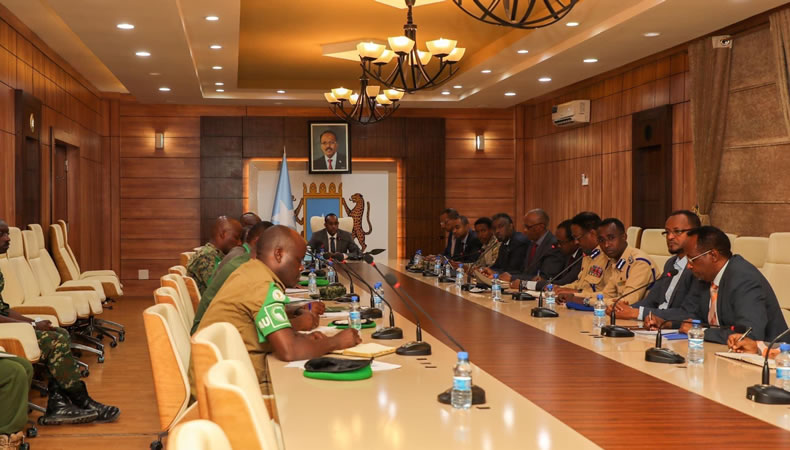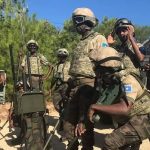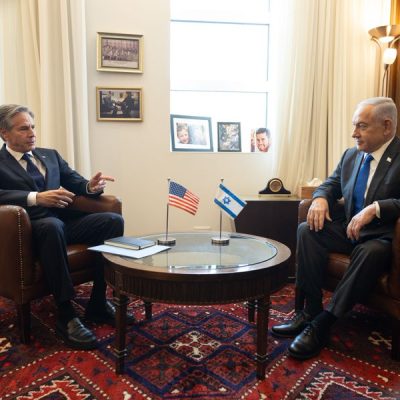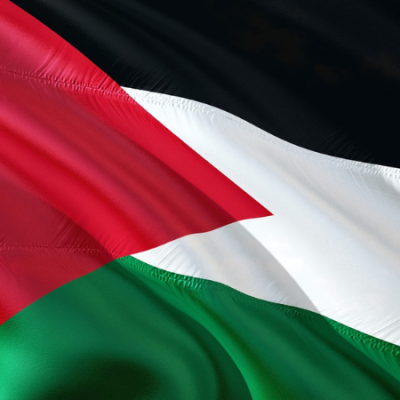Will the new AU mission in Somalia succeed, from Amisom to Atmis?

 Somalia-African troops have been rotating through Somalia for 15 years as part of a 20,000-strong UN mission tasked with protecting the country’s frail central government against an Islamist insurgency. However, the mission is coming to an end, with a transitional force allocated fewer than two years to pass over security responsibilities to Somalia’s national army and leave the country. Will it be successful?
Somalia-African troops have been rotating through Somalia for 15 years as part of a 20,000-strong UN mission tasked with protecting the country’s frail central government against an Islamist insurgency. However, the mission is coming to an end, with a transitional force allocated fewer than two years to pass over security responsibilities to Somalia’s national army and leave the country. Will it be successful?
What exactly is Amisom?
The African Union Mission in Somalia (Amisom), established by the UN Security Council in 2007, was entrusted with combating Al-Shabaab extremists intent on toppling the foreign-backed government in Mogadishu. The operation, which included Africans from all across the continent, pushed Al-Shabaab out of Mogadishu in 2011, allowing for the formation of a government and federal agencies, as well as two rounds of elections.
“Amisom helped secure and provide a suitable atmosphere for politics and economic activity,” said Samira Gaid, executive director of the Hiraal Institute, a security think tank located in Somalia. However, following the first victories, the operation has largely been defensive. “In 2014, 2015, there was an opportunity to maintain the attack and get the upper hand against Al-Shabaab… That opportunity was not grasped,” Gaid stated. Amisom resorted to defending its positions as Al-Shabaab gained foothold in rural regions and reassembled to undertake devastating strikes across the country, unable to rely on Somalia’s inadequately trained and equipped national army.
Related Posts
Is it well-known?
Many of Amisom’s largest troop suppliers, such as Uganda, Kenya, and Burundi, have a predominantly Christian population, and Al-Shabaab has attempted to portray them as “crusaders” attempting to seize Muslim countries. Accusations of rape and murder leveled against Amisom soldiers added to the public’s skepticism of the foreign army operating in Somalia.
Some nations, like Kenya, with which the central government has strained relations, have also been accused of using the mission to intervene in Somalia’s affairs, according to the central government. Mogadishu has never been shy in asserting control over its own security.
However, in a nation where Al-Shabaab has the capability to undertake regular and devastating attacks, Amisom is critical for safeguarding important assets and supply lines. “Amisom was trapped in a rut where it wasn’t making any fresh progress, but removing it would mean reversing progress,” said Omar Mahmood, a Somalia expert with the International Crisis Group.
So, what’s next?
The UN Security Council decided on Thursday to replace Amisom with the African Union Transitional Mission in Somalia (AU Transitional Mission in Somalia) (Atmis). Atmis has a more offensive mission than its predecessor, and it aims for Somalia’s army and police force to take over security by the end of 2024.
On Friday, Somalia’s government applauded the decision and stated that it was “determined to ensuring the handover of security responsibilities from Atmis to Somali security forces.” Troops should be gradually evacuated during that period in four separate phases, all of which should coincide with important ground operations against Al-Shabaab.
Analysts are skeptical that the schedule will be adhered to — Amisom was prescribed for six months and continued for 15 years.
“We’ve seen these same timescales time and time again… those timelines are still dependent on ground circumstances, and that’s been the case for years,” Mahmood added.
According to Gaid, there isn’t much of a difference between this task and the last. “You have the word’transition,’ which gives funders optimism that they’re nearing the conclusion of paying for this costly endeavor,” she explained. “It also offers (the Somali) side optimism that Amisom is nearing the end of its life.” She stated that Atmis should focus on training and equipping Somali personnel as well as investing in security infrastructure.
Is it likely to succeed?
According to analysts, progress on security cannot be made while the country is engaged in a political impasse. Elections have been delayed for more than a year, and the process of electing a parliament, which will pick a president, has been hampered by power battles at the highest levels of government and feuds with several states.
Given the uncertainties surrounding the “very controversial” election process, Mahmood believes Atmis’ timelines are ambitious. “In order to sustainably execute some of the security dynamics, reconciliation is required,” he stated. Collaboration on security between Mogadishu and Somalia’s federal states would be necessary to achieve these goals, as would confidence, which is lacking in some circumstances. Gaid estimated that transferring security over to Somalia would take “at most five years, maybe ten years.”










